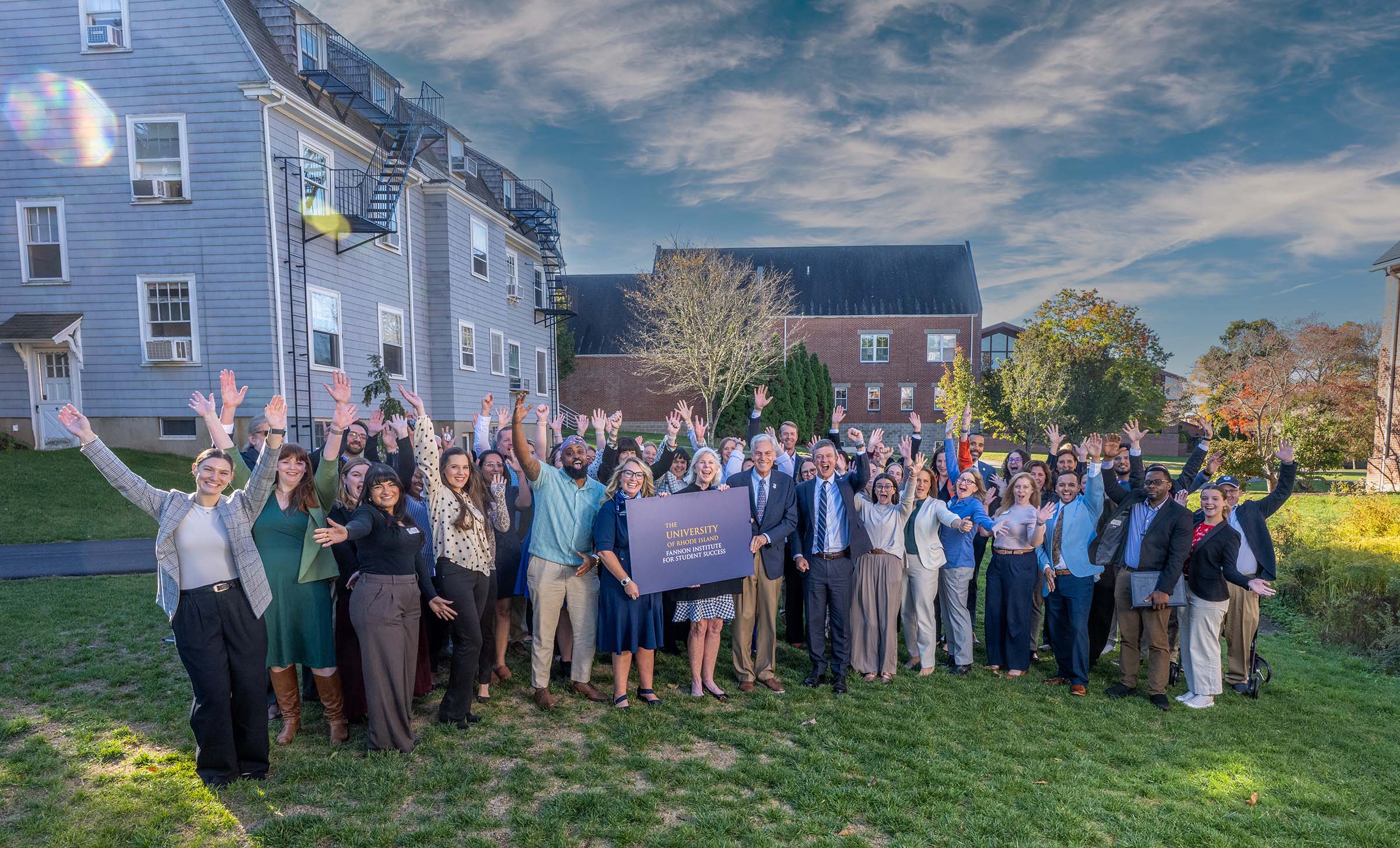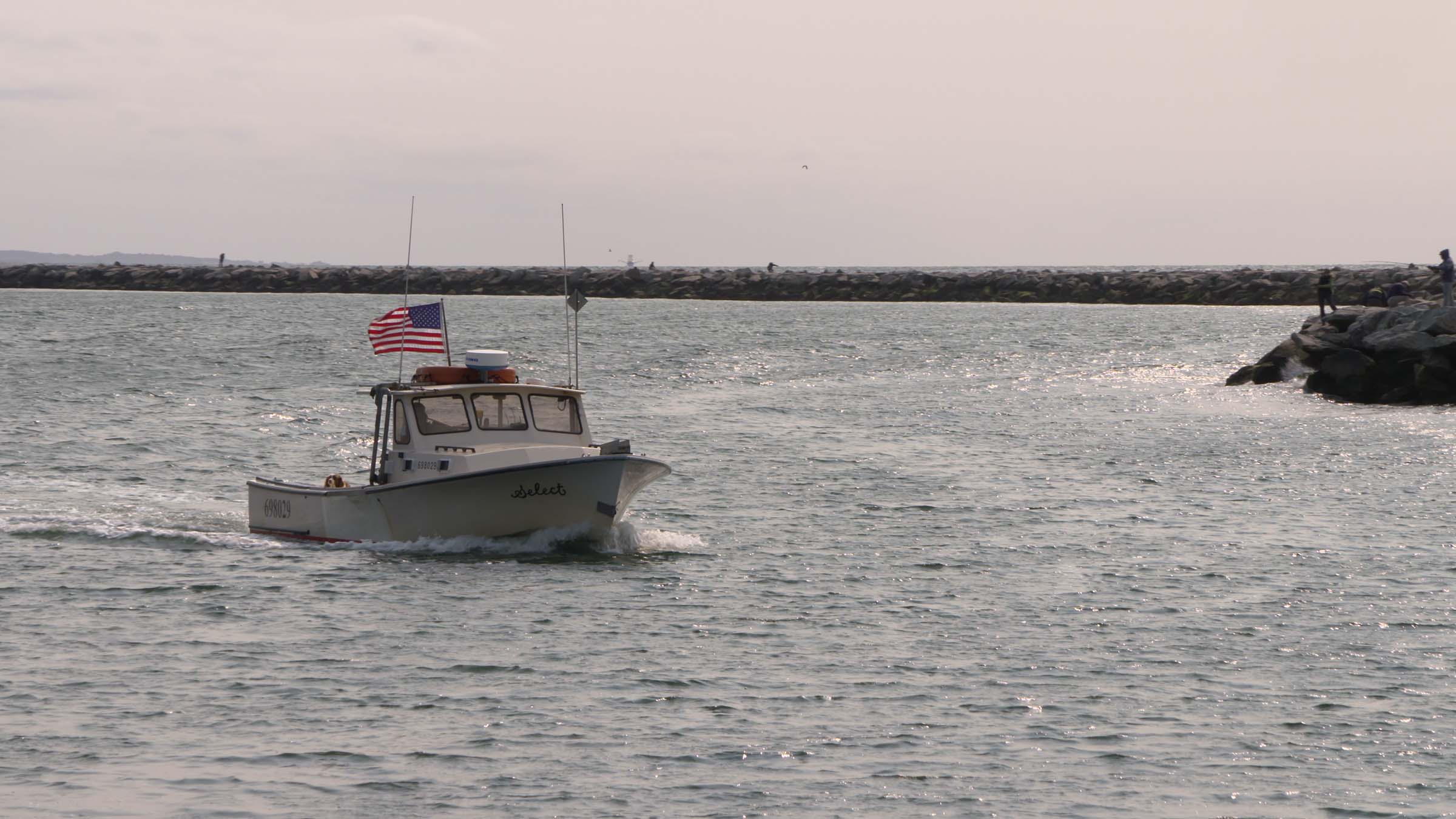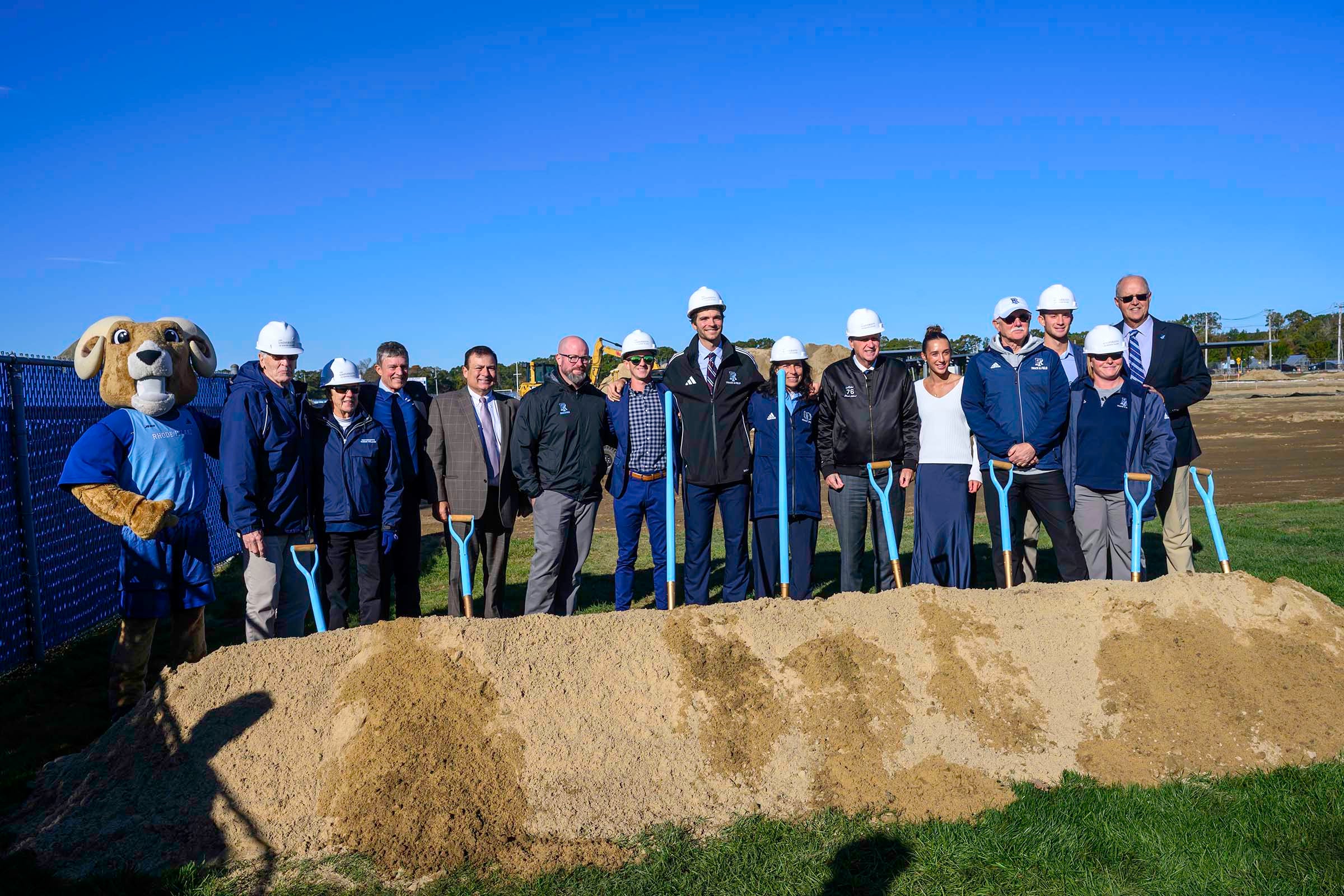URI marine affairs professor honored for work studying global nuclear order
KINGSTON, R.I. – Feb. 20, 2025 – Can you name all of the countries in the world possessing nuclear weapons capacity?
That’s a query Elizabeth Mendenhall uses to engage her graduate and undergraduate classes at the University of Rhode Island.
Mendenhall recently traded nuclear insights with others well-versed in the topic at a global celebration marking the 58th anniversary of the Treaty of Tlatelolco. If that’s not a name or place readily tripping off your tongue, Mendenhall would like to change that.
The treaty established the first nuclear weapon-free zone in the world.
An associate professor in URI’s Department of Marine Affairs, Mendenhall and her co-author, J. Luis Rodriguez, were honored by the multilateral organization OPANAL for their research on nuclear arms control and the significance of the treaty, signed just five years after the Cuban Missile Crisis had the Western Hemisphere poised on the brink of war in the fall of 1962. That incident made Latin American governments well aware of risks from the nuclear arms race and led to creation of the treaty designating the first weapon-free zone in a densely populated area.

Commonly referred to as the Tlatelolco Treaty, the agreement opened for signature on Feb. 14, 1967, prohibiting the development, acquisition, testing and deployment of nuclear weapons in the region of Latin America and the Caribbean.
Tlatelolco was the first international law to define and prohibit nuclear weapons and inspired the creation of other nuclear-free zones in the South Pacific, Southeast Asia, Africa, and Central Asia. Today, these five zones represent a total 116 nations, and encompass more than 50% of the planet´s surface.
OPANAL (Agency for the Prohibition of Nuclear Weapons in Latin America and the Caribbean) presented Mendenhall and Rodriguez with the Trindade Award for Nuclear Disarmament and Non-Proliferation in recognition of their work to explain how Latin American countries strategically shifted difficult topics from negotiations on the Tlatelolco treaty to negotiations on the law of the sea.
The two met as graduate students at Johns Hopkins University, where Mendenhall earned her Ph.D. in international relations. Her research today centers on ocean governance, including nuclear transit, artificial island building, sea level rise, plastic debris, the South China Sea, cruise ships and COVID, fisheries conflict, and biodiversity negotiations. Mendenhall is a member of the advisory board at Ocean Development & International Law and also on the board of directors of Rhode Island’s Save The Bay.
The two became friends and went on to publish a paper on the treaty in International Affairs in 2022, one of the top journals in the field of international relations.
“Ours is also a story of friendship,” she says. “Often, this is how good research collaborations work.”
Call of the sea
Mendenhall grew up in landlocked Kansas, viewing prairies, instead of ports, but felt the call of the sea from a young age, fascinated with the vast world of the ocean.
“I was very interested in the ocean and science fiction,” she recalls. “I just thought it was so cool and exotic.”
Even today, the iconic “Earthrise” image holds a place of honor in her home office in Warwick, reminding her of the vulnerability of the planet and why she’s doing the work she is today. It’s important to look at the world at scale, she says, to remember the reasons for the study of the interplay of nations on planet Earth.
Mendenhall says the Treaty of Tlatelolco represented a significant step in the global nuclear order, showing the value of coordination to overcome power imbalance in international negotiations. Developing countries were able to negotiate with the “great powers,” despite having less power in global governance. Mendenhall says states in the region led by joining and advocating together, negotiating as a bloc with the governments of the U.S., Soviet Union and China.
The creation of the first free zone, says Mendenhall, indicates that it’s not only powerful actors who can influence international politics. The treaty demonstrates how small states can work together and take a leading role for increased security.
Nuclear worries
Mendenhall is reminded at times that today’s college students have less awareness of nuclear threats compared to students of the 1950s, with their “duck and cover” drills, or those of the 1980s worriedly watching The Day After.
Despite fewer fears today, Mendenhall hopes to draw attention to the treaty and what it represents as a significant step for global security.
“It’s remarkable for its durability,” she says. “The notable thing about this treaty is that it was not just about the big countries dictating what happened but showed how smaller countries in the global south could work together to create a model of restraint. They showed they can also have agency and leadership and push things in the right direction.”
“It all matters,” Mendenhall says. “I hope the research we are doing here at URI prepares students for jobs in their fields and gives them increased awareness of the political aspects of marine affairs.”
Latest All News
- URI Launches Kent and Diane Fannon Institute for Student SuccessKINGSTON, R.I. – Oct. 17, 2025 – The University of Rhode Island has officially launched the Kent and Diane Fannon Institute for Student Success, a revitalized and modernized version of University College, designed to meet the evolving needs of today’s students. Named in honor of alumni and longtime supporters Diane ’74 and Kent ’74 Fannon, […]
- URI part of finalist team selected by National Science Foundation in Regional Innovation Engines competitionKINGSTON, R.I. – Oct. 17, 2025 – Aquaculture/Fisheries Professor Marta Gomez-Chiarri is leading efforts at the University of Rhode Island to help position New England as a national leader in the seafood industry, hoping to secure final funding through the National Science Foundation’s (NSF) Regional Innovation Engines program. URI joins a consortium of regional partners, […]
- Students line up for first late-night Stuff-A-Ram event of semesterStudents lined up on Oct. 8 outside the Ram’s Den in the Memorial Union for the semester’s first Late-Night Stuff-A-Ram event, hosted by the Office of Student Involvement, inviting students to build their own stuffed Rhody the Ram. The event had 250 plush kits available, and people distributed them on a first-come, first-served basis beginning... The post Students line up for first late-night Stuff-A-Ram event of semester first appeared on The Good 5¢ Cigar.
- Lebron’s second decision“The Second Decision,” made by Los Angeles Lakers All-Star LeBron James, has struck some controversy among fans and the media, as there have been mixed emotions toward the announcement. On Oct. 6, James made a post on social media stating he’d be making “the decision of all decisions” in what looked to be a sit-down... The post Lebron’s second decision first appeared on The Good 5¢ Cigar.
- Rams respond from conference defeat with dominant victoryThe University of Rhode Island men’s soccer team split its two games this week, losing a 1-0 match on the road against Davidson College before returning home for a senior night 4-0 victory over Central Connecticut State University. A penalty kick ended up being the difference in Saturday’s road matchup against the Wildcats. URI fourth-year... The post Rams respond from conference defeat with dominant victory first appeared on The Good 5¢ Cigar.
- URI takes big stride forward with groundbreaking of new track and field facilityKINGSTON, R.I. – Oct. 16, 2025 – The University of Rhode Island has a winning tradition in track and field and will soon have facilities befitting that tradition. By the summer of 2026, URI will have one of the best outdoor track and field facilities in the Northeast and one that is reflective of the […]










